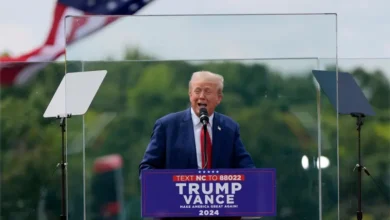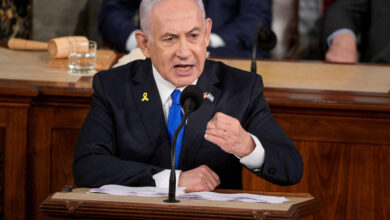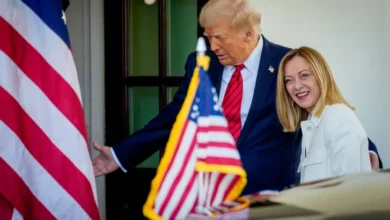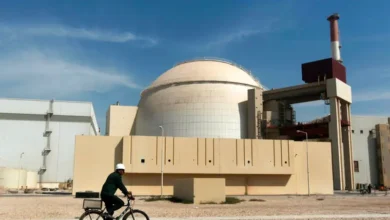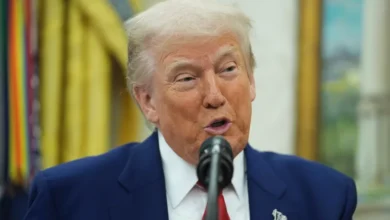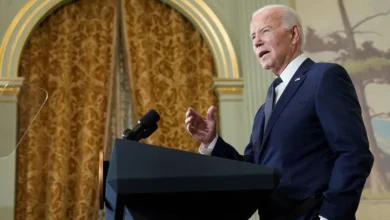Trump’s ‘America first’ policy is complicating business of making cars

United States President Donald Trump’s latest tariffs on the auto sector have made one thing clear, experts say: The US is no longer a beacon of free market trade, and businesses need to switch to the reality of “America first”.
On Wednesday, Trump announced 25 percent tariffs from this Thursday on all cars, light trucks and auto parts imported into the US, a move experts called “devastating” for the industry.Almost half of the 16 million cars sold in the US last year were imported with a total value exceeding $330bn, according to news reports quoting Goldman Sachs analysts.
It is not clear whether the tariffs will go into effect as laid out in Trump’s latest announcement or if there will be exceptions or any rollback.
“But one thing we know for sure”, said Ilhan Geckil, senior economist at the Anderson Economic Group (AEG), is that “Trump’s policies are protectionist and not free market and free trade the way that the US has done [things] for decades. Now that’s shifting. … That’s the new rule, and companies have to play accordingly and will have to increase business presence in the US.”Some car manufacturers, including South Korea’s Hyundai and Kia, have announced plans to boost production in the US.
While that gives the impression that Trump is right to argue tariffs will force manufacturers to produce more in the US, the full picture is more complicated, Geckil said.
“The US really is the best in terms of the size of the market” and accounts for nearly 25 percent of global auto sales, Geckil said, explaining why automakers do not want to lose access to the US market.
But the reason a lot of manufacturing moved out of the US was to take advantage of lower prices and cheaper goods.
Bringing manufacturing back to the US will lead to higher prices for their products, hitting demand, he said.“Prices are going to go up significantly, and that will have a spillover effect,” Geckil said, adding that he expects to see higher sticker prices within a month or so of the tariffs kicking in.
“A $50,000 vehicle will become a $75,000 to $80,000 vehicle in a couple of years, and that price hike is going to stay there forever,” he said.
That, in turn, will eventually lead to job losses, contrary to Trump’s stated goal of protecting American workers, Geckil said.
As per an earlier estimate by AEG, tariff proposals floated by Trump in February would raise the price of a car assembled in the US, Canada and Mexico from $4,000 to $10,000 for most vehicles and $12,000 or more for electric vehicles (EVs)
The estimate did not include the impact of retaliatory tariffs that other countries might impose.
